Interview with Mohammad Raja, Media and Human Rights Activist in exile
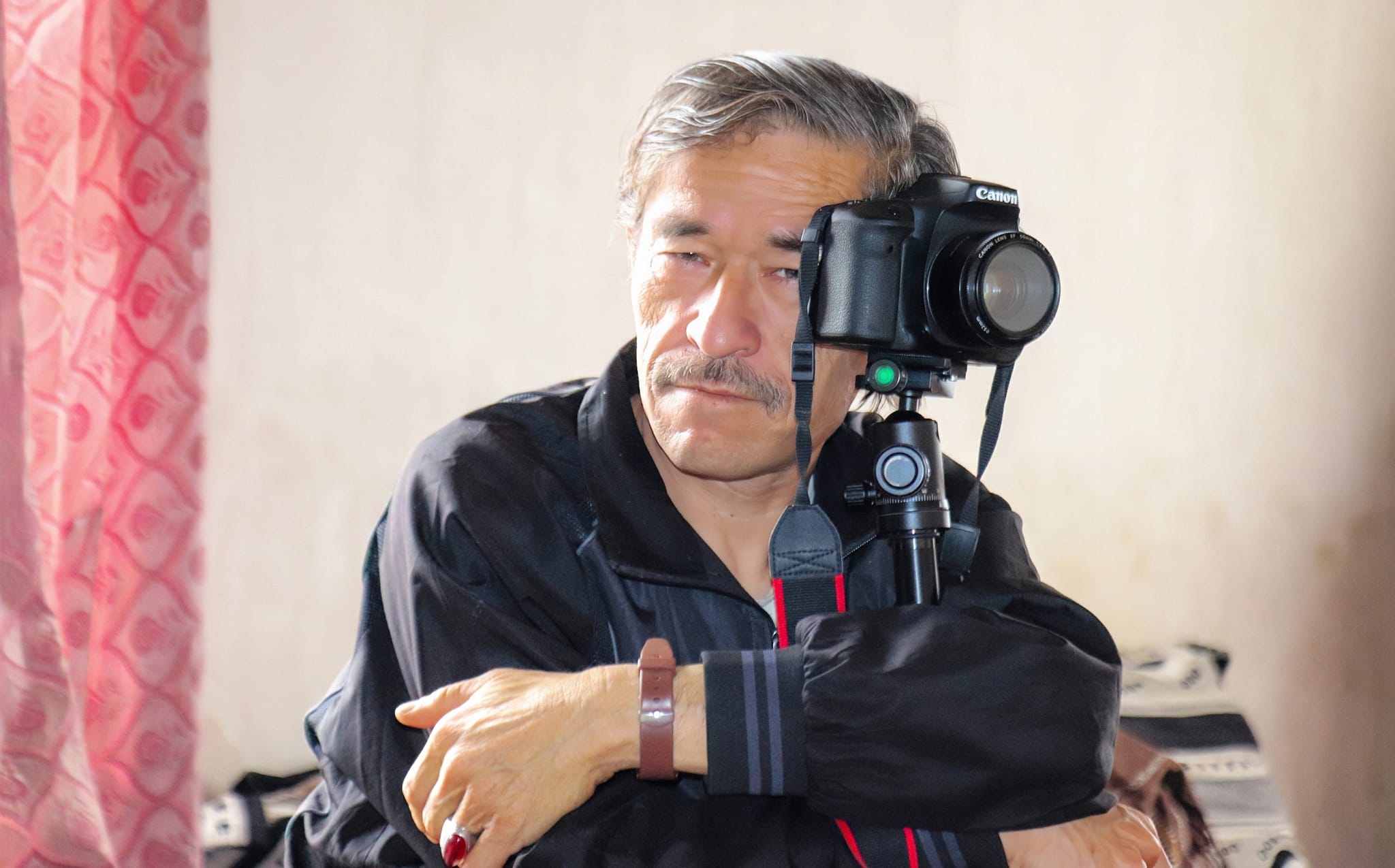 SWW: When did Radio Daikondi, the of Voice of Nili, started broadcasting?
SWW: When did Radio Daikondi, the of Voice of Nili, started broadcasting?
MR: Radio Daikondi started its activities in October 2004 with financial and technical supports of Internews Agency, having very few facilities. It had three plastic chairs, a plastic table, one desktop computer, one mixer and a 50-what transmitter. The studio and administrative office of our radio was in a 7.5-meter shop and we could hardly work there. The shop did not have a window. On one side of the shop there was a welding shop and carpenter shop, and on the other side, there was small shop. We were there for six months and had good, bad and funny moments there. The we moved the studio to a newly built school which did not have students about two years.
SWW: How many employees and reporters did Radio Daikondi have when it was started:
MR: When the Radio was started, it had four employees, one female employee and four men employees. I was the manager of the radio, there was one technician and tow reporters. The they fall in love and escaped from Daikondi. As a result, families did now allow their daughters to work at radio stations. However, after two or three years, girls constituted most of our volunteer and contractual employees.
SWW: What topics were covered on the radio?
MR: Neither me and nor my other counterparts had worked at a radio station. We neither had an experience in this field nor had received any training. We mostly imitated Radio BBC and Radio Farda programs. We were so unprofessional but motivated. After about 8 months, we were invited for a one-week training to Kabul. As we loved working at a radio station and as Radio Daikondi was the first radio that provided an opportunity to work with it in the newly created province of Daikondi, we worked hard to produce different programs and people encouraged us a lot. Our programs included news, educational programs, entertainment, reactional, political and social programs. Radio Daikondi was the friend of the joys and grieves of the people.
SWW: Kindly talk a little more about one of the programs of Radio Daikondi which was more popular among the people.
MR: Most of Radi Daikondi programs were interesting and were popular. But one of them which many people have good memories of it was the socio-amusement program, “Good Morning Daikondi”, played with a silent Iranian music and happy and fast retheme. On those days people had bad memories of civil war and were not much compassionate to each other. Good Morning Daikondi tried to foster empathy among them and encourage the people to participate in good governance processes and public works. It motivated and encouraged the people. One People and One Voice, was our motto. Even those people who were not interested in radio programs, they listened this program from beginning to the end. And the youth danced with it. As I managed the program most of the time, the people changed the name of the Radio to “Raja Radio”, due to its publicity.
SWW: Did Radio Daikondi only covered Daikondi or it covered other parts of the central highlands?
MR: Daikondi is a mountainous province and short-wave transmitters are not suitable for mountainous areas. Because the waves can’t pass the mountain barriers. As the transmitter of Daikondi was a short-wave 50-whtat transmitter, it only covered Nili city and some parts of Gizab, Ashtarlai and Khidir districts.
SWW: How many employees did you have and how many women working at the radio station?
MR: Radi Daikondi did not have a specific number of employees. On the first days, after it was started, it had four employees. Sometimes, we had totally 20 employees, including volunteers and contractual employees. On the first days, when the radio started working, most of the people did not allow their daughter to work at radio stations due to traditional and tribal beliefs and values. But after three years, in some cases, we had more female employees than male workers.
SWW: Why did you leave Radio Daikondi and started working as manager of Rado Aftab?
MR: I was the founder and Manager of Radio Daikondi. I had a partner in Daikondi radio, conditioned the partner should not interfere in the work of the manager. All policies, except financial issues, were part of the responsibilities of the manager. My partner was a government employee and he did not like to disclose corruption of the government officials by Radio Daikondi or to criticize them. He was not professional in journalism. But his interference in the professional work of the radio reduced the quality of its work. As I and most of the employees of Radio Daikondi thought we should report the facts as the collective right of the people, and neglecting the corruption of the government officials was betray to the collective rights of the people, I decided to give my share to my business partner and leave radio Daikondi.
SWW: Why did join Radio Aftab? How long did you work with it? What programs did you cover by Radio Aftab?
MR: When they wanted to found Radio Aftab, they could not find an eligible person as editor in chief to obtain the work permit. One of the qualifications of the manager was three years’ experience in the field of visual, audio and written media. At the time, I was the only eligible person in Daikondi for this position. While I was the manager of Radio Daikondi, at the same time, I was appointed as the manager of Radio Aftab and served at Radio Aftab for 10 months to settle things on the track and then resigned. I was not much involved in program production and was mainly involved in programming and production in order not to face legal issues. Radio Aftab managers and employees were not much successful for lack of experience for three years.
SWW: Please talk about Radio Aftab programs and how many staff did it have?
MR: At the beginning, Radio Aftab had five contractual and three volunteer staff. Radio Aftab had two business partners and they were mainly focused on income generation without investing on it. They though once the radio started working, it would have income without hard working and investing on it. It continued working for three years but did not have much audience as its two rival radio stations.
SWW: Checking your background, we found that you had produced political programs of Radio Nasim. When did you start working with Radio Nasim?
MR:I started working with Radio Nasim after two years this radio was founded. At the beginning the partners of Radio Nasim asked me to join it as a partner. As I had a bad experience in partnership at Radio Daikondi, I told them it was better they compete with Radio Daikondi in order to produce better programs. After leaving Rdio Daikondi, I joined Radio Nasim.
SWW: Was Radion Nasim’s programs effective? Did the local government of Daikondi pay heed attention to its suggestion on local governance?
MR: Radio daikondi and Radio Nasim changed the perception of the people on many issues. I well remember, Once I had a tough debate with Jan Mohammad Akbari, the second provincial governor of Daikondi. Next day, anyone who saw me, told me, “I was mad”, the governor is the shadow of God and representative of the king. Why don’t you respect him? You are an ordinary vassal. But after some years, those who criticized me, they started criticizing the governor and demanded their rights from the local government officials. They did not consider the provincial governor and the security command as the showdown of God anymore. So this media could change the perception of the people on human rights, education and participation, accountability of the local authorities to the people, democracy, transparency and many other concepts. At the beginning, the local government officials did not pay much attention to our programs and did not consider themselves accountable to media. But then they were concerned about the programs of radios, especially Radio Nasim. For example, when an official wanted to give a speech, they started greeting the government officials, civil society and Radio Nasim.
SWW: Did you ever face violence by government officials, local armed forces and Taliban while working with Radio Nasim?
MR: When I was working in DaiKondi with Radio Nasim, I was threatened by armed groups, especially the Taliban militia. Radio Daikondi and Radio Nasim covered parts of Gizab district the ever stronghold of Taliban. Taliban followed up our programs. Our goal was awareness raising among the people and mobilize their perceptions against the Taliban crimes which the group repeatedly committed on those years in Gizab, Kijran districts and other parts of Daikondi. As a result, we were threatened in written and though phone calls for several times. But I did not think the Taliban terrorist group will take over Afghanistan again. I also faced insults, violence and detention and imprisonment by the local government officials. They opened a case against me, in order to make me leave the scene for them, which is a long story and don’t want to discuss it here.
 SWW: Did the radios you worked with were free in their broadcast or the local government censored them?
SWW: Did the radios you worked with were free in their broadcast or the local government censored them?
MR: power is always accompanied with corruption and arrogance, and no official want their corruption to be disclosed or media act against their will in order to make them accountable to the people. We were free in our broadcast. But did not have much free them after we publish something. As already mentioned, we have been impeached, arrested, imprisoned and subjected to violence many times for reporting; But we rarely have given up to censorship.
SWW: Do you remember instances that reporters of Radio Nasim have been threatened or beaten by the then local officials?
MR: Yes, it happened a lot. I and my colleagues have been imprisoned, threatened, insulted and subjected to violence by the local officials. I have been imprisoned and have also been beaten by their men. I and many of my colleagues have experienced such treatments. One of the worst cases happened during the time of time of Masooma Moradi which we were nearly killed. She was one of the most corrupt and disqualified provincial governors of Daikondi. But she was not much her fault; her husband and people close to her were involved in corruption. We published the documents of moral, administrative and financial corruption of her husband and those around her who were involved in corruption. We planned to release these documents; So that Moradi was desperate of leaking all the corruption documents of her office and their evidence through Radio Nasim.
She wanted to force us to be silent by threatening to kill, kidnap, bribe and promise by herself and her people and unknown addresses; But we did not give up. First, she started foolish tactics against the Radio Nasim. Her people, wrote slogans on Radio Nasim at night, insulted us, she made heavy and unproveable accusations against us. Whenever she and those around her took a step in the path of corruption, we followed them with a flashlight in hand. At the same time, a dangerous action was taken against us that could take the lives of several employees of Radio Nasim. One midnight, a hand grenade was thrown on the Radio Nasim with intention to kill us. Fortunately, the hand grenade hit the window fence and did not explode while one of my colleagues was at the studio and two of them were sleeping in the hall. If the hand grenade has exploded, the studio would have blasted and three people would have been killed in the blast. It was not clear whether Taliban had thrown it or people of the governor. When we complained to the security establishment, they asked for 25 days to investigate the incident and identify the terrorist behind it; But after several years, it was not clear who was behind the attack. The security officials only told us that the provincial governor or his men were not behind the attack.
SWW: What programs did Radio Nasim run and how many staff it had?
MR: The number of female and male employees were not fixed at Radio Nasim; But it had a colorful presence on this radio. Courageous and creative girls’ reporters were trained at Nasim Radion. Policy of Radio Nasim created a conducive environment to develop the talents of its employees, especially the female employees.
Radio Nasim had very diverse programs; news, educational and analytical. Some programs remained stable until the collapse of the republic government the Taliban terrorist group take over, due to their popularity and attractiveness. One of them was conversation-based program run by me.
SWW: What impacts had the Taliban takeover on Radio Nasim and which programs have stopped since then? After the Taliban take over, all democratic achievements of Afghanistan were destroyed, and nothing is like before they were including the freedom of press and media.
MR:After the Taliban take over, 99 percent of Radio Nasim publications were stopped. Today, Radio Nasim is not able to raise its voice; it is a voice coming from the graveyard of freedom of expression.
SWW: Taliban closed Radion Nasim and arrested its reporters some months ago. They have recently sentenced Sultan Ali Jawadi to one year in prison. What’s your idea about it?
MR: On the first days of Taliban take over, they run over the ordinary people for several times, and one case was killing of a mother and her son which Taliban did not arrest the accused murderer and Radio Nasim published this news. Next day, the Taliban security command insultingly summoned employees of Radio Nasim and threatened them if they broadcast such news again, he will shoot them himself in front of the PGO square.
First, unfortunately, three months ago three employees of Radio Nasim were insulted and beaten by Taliban intelligence, one of the employees was my former colleague. They were under investigation and psychological torture for six hours and were released on bail. Then they sealed off the door of Radio Nasim and all equipment including smart phones, cameras, and recording tools were seized by the Taliban Intelligence. Over past two years, employees of Nasim Radio have been frequently threatened to death and they have been insulted, beaten and arrested by Taliban.
Second, I have studied journalism at Balkh University and I am a journalist by profession. I have tried to be the voice of the people and make the authorities to be accountable to the people. After the Taliban, take over, many journalists left Afghanistan; but I stayed there and was a means of hope for people of Daikondi. After the closure of Radio Nasim nothing was publicized. Taliban do what they like to do in the absence of free media and free reporters. First, Taliban prosecuted a number of journalists and closed the free media outlets. Taliban have accused Jawadi of several baseless accusations; rebellion against the Taliban government, contact with his former colleagues who are under prosecution, cooperation with media out of the country, reporting moral and administrative corruption of Taliban to the media out of Afghanistan and espionage for foreigners. One year imprisonment is unfair for Jawadi. Nowhere of the world, awareness raising is a crime. The Taliban judge has told Jawadi, “If I had not imprisoned you for one year, and released you, you would be killed.” This shows all of those reporters who have been killed over the past two years by unknown armed men, have been killed by Taliban.

SWW: Why did you leave Radio Nasim and was exiled to Iran?
MR: I didn’t come to Iran by my will; I didn’t choose it. I was forced to come to Iran due to threats facing in Afghanistan. I was threated several times by Taliban before they take over Kabul. Iknew Taliban wanted to arrest me. At the beginning, as they had announced public amnesty, they asked my colleagues about me directly or indirectly. They Asked Where is Raja and why does he leave the Radio? Tell Raja to resume his work at the Radio and we have no issue with him. After a while, as I didn’t show, Taliban interrogated my friends and searched my house. They arrested my nephew, who is a farmer, and imprisoned him. Taliban had tortured him viciously. They took money from him by force and made him to buy weapon for them. Ultimately, the Taliban red corps issued a warrant for my arrest. So, I concluded Taliban do not allow me to live in Afghanistan. Thus, I escaped from Afghanistan. If I had remained in Afghanistan, I would have faced a bad fate. Mirza Hassani, Manager of Radio Aftab and a close friend of mine, who was arrested while he was running a way to Iran, by Taliban intelligence and was tortured about five months at the Taliban prison, told me he was just tortured for two weeks to share my whereabout with them.
SWW: Is your safety and security guaranteed in Iran?
MR: No! not at all. As I have no residential documents and my visa is not extended. I am an illegal refugee in Iran. When I go out of home, I am not sure I would come back again. I am under prosecution as a criminal by police. It looks as a magic that I have not been arrested by police yet. I am not secure in Iran due lack of residential documents. I neither have psychological security and nor job security. My future is unclear here and I may be deported as all other illegal refugees.
SWW: Overall, how was the activities of media during the republic government and how much they were influential on decisions of the local government officials?
MR: Freedom of expression and press was one of the most outstanding achievements of the former government at the national and international level, although the post freedom of expression was challenging. I may claim that media had a very positive impact on the local government officials. Because they knew media watch them.
SWW: As an experienced person in journalism and civil society activities in Daikondi, would you tell us how many media outlasts and journalists were in Daikondi before the Taliban takeover?
MR: Over the 20 years of the republic, several printed media were established in Daikondi but they could not continue their work for a long time; they only lasted for two or three years. The only media which could publish more than 35 volumes was Fariad Daikondi. Other printed media could publish 15 to 20 volumes and then they usually stopped their publishing. Dring the republic, there were 4 private radio stations, one government Radio-TV station and private TV station in Daikondi. The private TV station of Sabzha could only work for six months, but four private radio stations continued working until the collapse of the republic. After the Taliban takeover, Radio Aftab and Radio Daikondi were looted. Radio Sedae Qaria stopped its publications for a while and started its publications after 8 months silence. Radio Nasim continued its publications under Taliban threats but it was sealed off and its publications was stopped some days ago.
SWW: How is the activities of media outlets in Daikondi after the Taliban take over and how many media outlets stopped publishing and how many journalists lost their job and left Daikondi?
MR: As mentioned above, after the Taliban Takeover, nearly all media outlets stopped working and we lost all our achievements, including media achievements. Those who followed up media performance, knew that Daikondi had the most awake and passionate media outlets and journalists. More than 35 people worked with the four private media outlets of Daikondi. After the Taliban take over only 3-4 people work with the two half-hearted Sadae Qaria and Radio Nasim now; all other journalists lost their jobs and were displaced.
SWW: As a media activist, would you tell us how many journalists have been arrested and imprisoned by Taliban over the last two years?
MR: Over the past two years, radio employees have been insulted and belittled several times and they even have been arrested for two or three hours. As the latest case, Radio Nasim employees were detained for six hours. Mirza Hassani has experienced the longest period of detention in interrogation, he was imprisoned and tortured more than five months by Taliban.
SWW: would you tell us one of your memories as a media and human rights activist in Daikondi?
MR: working for more than 19 years in Daikondi with different media outlets, I have many happy and sad memories. My saddest memory is the day that I was not able to run a program on the radio due to life threats and worse than that was leaving Daikondi to protect my life. I left Nili and Radio Nasim with all their sweet memories. I am not hopeful to return back to Daikondi until the terrorist group of Taliban control there.
SWW: Beside working with three radio stations, kindly tell us about your human rights and media activities in Daikondi?
MR: while I had the opportunity to be employed as an official employee in public administration offices; but I did not apply for such positions. I worked about 8 years as short-term contract employee as press officer with the Daikondi Department of Education. Being employed officially, I was not able to continue freely working as a civil, human rights and media activist. I was the founder of the first audio media outlet, first printing outlet, first human rights activist and civil society activist in Daikondi. From first days of my activities in Daikondi to the collapse of the republic, I continued these activities. I was one of the steadfast colleagues of the Afghanistan Independent Human Rights Organization. I wanted to realize the ideal society; but unfortunately, we lost all our democratic achievements after the Taliban take over.
SWW: As the last question, how is displacement and migration in Iran?
MR: It passes very difficult; such bitter and difficult that can’t explain it. My children can’t go to school. The wound of tongues multiples the humiliation and insults. Though, Iran has welcomed Afghan refugees for more than 4 decades, it has been accompanied with humiliation, insults and wounds of tongue. If my life was not in danger in Afghanistan, I wouldn’t have fled to Iran.

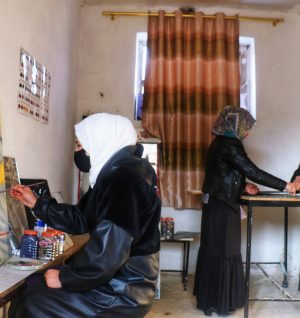
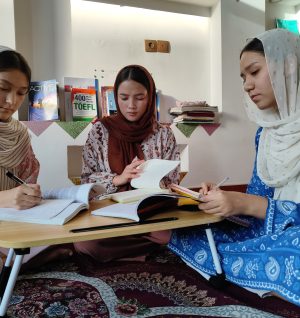
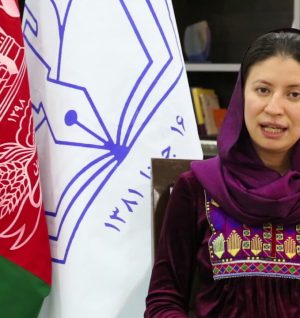

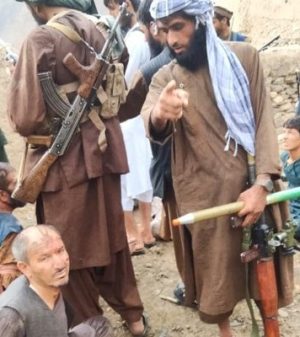
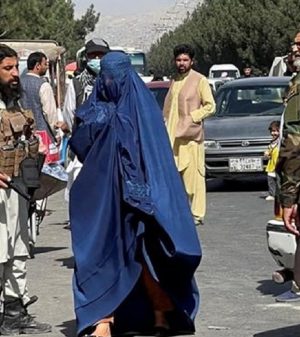
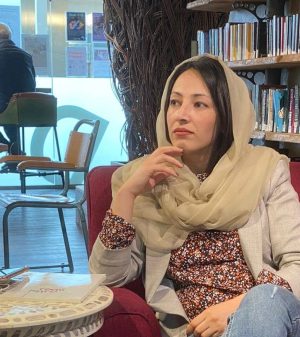
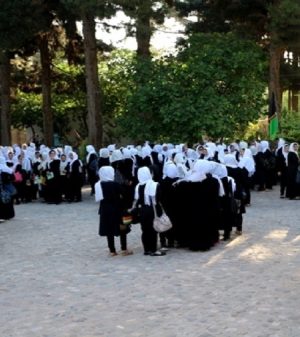
Add Comment